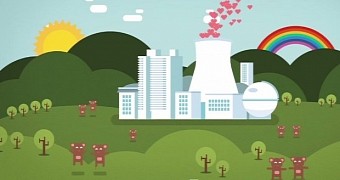Having learned how nuclear power has shaped our little world in recent years, it's time to take a few minutes to review the pros and cons of relying on it as an energy source.
As explained in the first of the two videos available below, the perks of using nuclear power are as follows: it can save lives and reduce greenhouse gas emissions, and unlike other energy sources, it can be made safer by technological advances.
The reason nuclear power is argued to save lives is that, since it produces less pollution than coal and other fossil fuels do, it doesn't get thousands of people sick with cancer and other deadly diseases on a yearly basis.
As for the cons of relying on nuclear power to meet our ever increasing energy demands, they shouldn't be all that difficult to guess. First off, there's no denying that nuclear research can lead to nuclear weapons proliferation.
Besides, it's important to keep in mind that, although more environmentally friendly than fossil fuels when harvested for energy, nuclear power translates into the production of toxic waste, which counts as a form of pollution.
Lastly, the fact is, no matter how careful we are, accidents and disasters are always a possibility when dealing with nuclear power. Chernobyl and Fukushima more than prove it.

 14 DAY TRIAL //
14 DAY TRIAL // 
